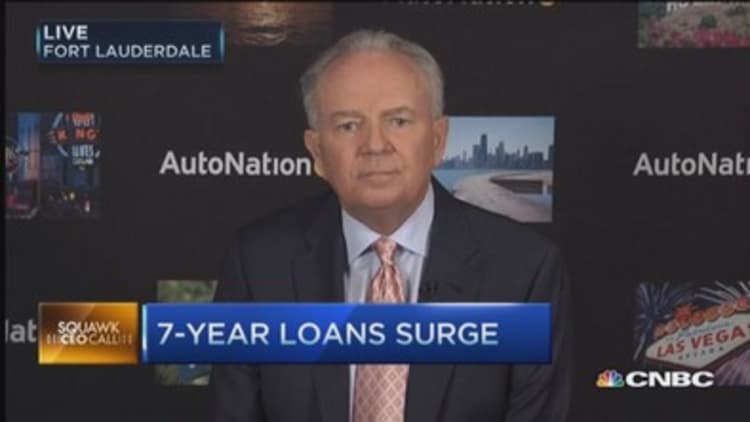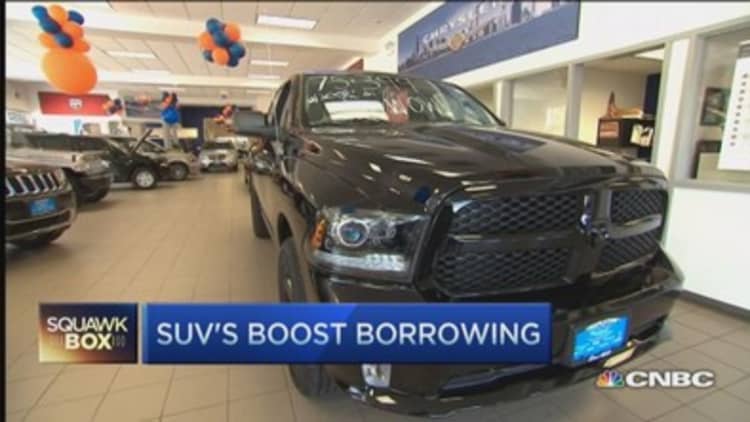
AutoNation CEO Mike Jackson told CNBC on Wednesday he doesn't see signs of trouble in the auto loan market even though Wells Fargo said it would cap lending to borrowers with bad credit.
Jackson said the auto industry had originated $3.5 trillion worth of loans to finance auto sales in the last decade. Meanwhile, the outstanding balance on that loan volume has only increased by $100 billion, he said on "Squawk Box."
"Think about that. $3.5 trillion of sales and the outstanding balance went from $800 billion to $900 billion. The point being people pay for their car loans," he said.
Read More
Wells Fargo, one of the country's biggest subprime auto lenders, said Monday it would limit the amount of subprime loans it originates to 10 percent of its total loan creation.
The number of vehicle loans with terms of six or more years has surged recently as borrowers aim to keep their monthly payments low, according to new data from Experian. More than 25 percent of new auto loans have terms that stretch six to seven years, the firm reported on Wednesday.

Jackson said he is no fan of "extremely long term loans," but said it is important to look at the whole financing picture, including leasing.
"The actual terms of loans have actually decreased from 57 months to 56 months when you include financing and leasing," he said.
AutoNation recommends that customers who want a lower payment are better off leasing so they have options at the end of their agreement, Jackson said.
Read More BMW anybody? Carmakers to gain most from weak euro
Less than 5 percent of AutoZone's sales last year were financed by subprime loans, he added. Meanwhile, delinquency rates are about 5 percent on subprime loans, compared with about 3.5 percent on total loan volume, he said.
On Wednesday, AutoNation reported that it sold nearly 24,000 vehicles, with negative care sales offset by strength in premium luxury vehicles and trucks.
The supply chain for trucks is "strained to its absolute limit," said Jackson, adding that car factories are working three shifts to meet demand and there are too few railroad cars to deliver the larger vehicles to dealerships.
"Quite frankly, the trend towards trucks—until we get back to $3.50 a gallon—I don't see it mitigating at all. It's trucks, trucks, trucks," he said.
Read More


